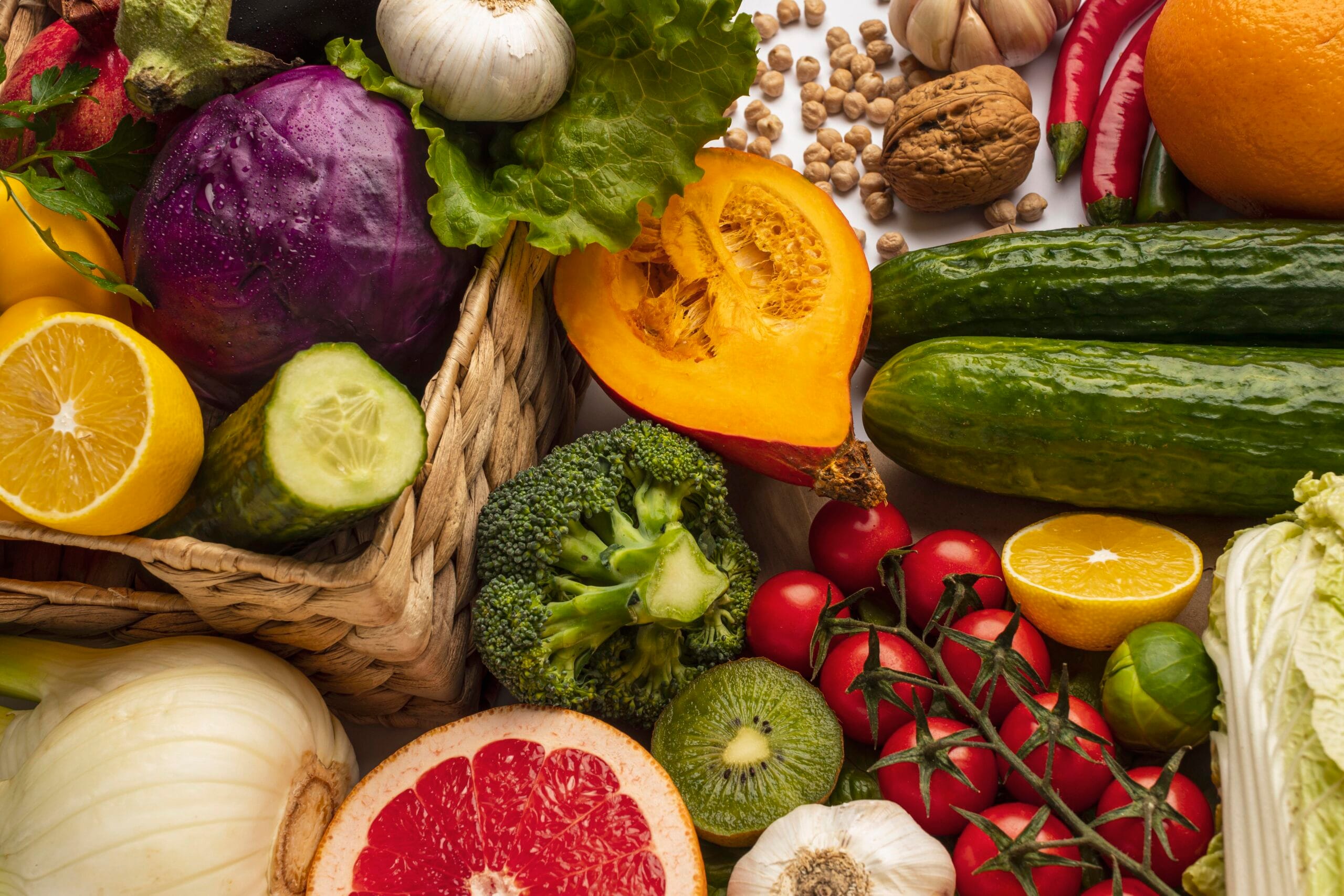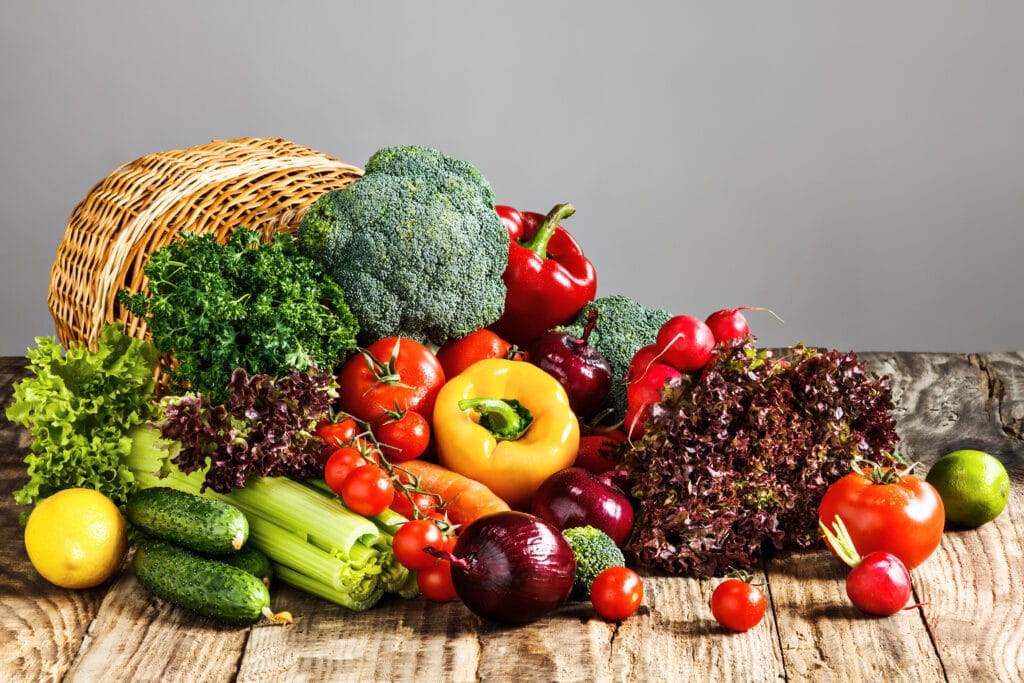
10 Benefits of Including Fruits and Vegetables in Kids’ Diet
- Introduction
- 10 benefits of including vegetables in kids diet
- Conclusion
Fruits and vegetables are rich foods that nourish the body and keep it healthy when consumed consistently. Eating fruits benefits the body without doubt, hence, incorporating fruits into kids at an early stage will promote good health through childhood into adulthood. Organic fruits can be referred to as delicious medicine, they are delicious and medicinal in that they prevent diseases and promote healthy living. They are natural foods packed with vital nutrients like fibre, vitamins, antioxidants, minerals and many more that shield the body from free radicals that can disrupt the body system.
Vegetables and fruits are body repairers and body shields; they can repair body tissues and shield the body from free radicals that can pose a threat to kids’ health in the future. This is why it is important to start healthy living for kids now to prevent body deterioration in the future. Instead of excessive junk in the body, they can be replaced with organic fruits and vegetables.

Here are the benefits of fruits/vegetables and their impact on kids’ health:
- Boosts Immune System Function
Vitamin C is a popular antioxidant known for boosting the immune system. It is found in both vegetables and fruits, making it easily sourced in the market. It is also a tissue repairer as it stimulates tissue repair, lowers inflammation and boosts the immune system to prevent body infections. Vitamin C can be found in oranges, strawberries, lemon, broccoli, black currant, mangoes and many more which are among common fruits and vegetables. Incorporating vitamin C-rich fruits and vegetables into kids’ diets can boost the immune system, lowering the risks of illnesses and common colds.
- Supports Healthy Growth and Development
One of the key ways to promote healthy growth and development for children is to constantly supply their bodies with vitamins and minerals. Every kid’s body requires adequate vitamins and minerals for healthy growth. Vitamin A, for instance, is a common vitamin essential for cell development and eye health. It is commonly found in vegetables like spinach, kale, and carrots while fruits like banana and avocado are rich in potassium, aiding muscle and heart health. A daily diet rich in vitamins and minerals will aid physical and mental development.
- Improves Digestive Health
Fibre aids digestion and most kids battle indigestion based on certain foods they consume. To improve kids’ digestive health, fruits and vegetables rich in fibre can be added to their diet for bowel movement and support. Apples, pears, berries, sweet potatoes and broccoli are common fruits and vegetables that can support gut health and allow free movement of bowels, thereby preventing constipation and promoting healthy gut health for kids.
- Helps Maintain a Healthy Weight
Including lots of veggies and fruits in kids’ diets can promote healthy weight. Fruits and vegetables are nutrient-dense as they provide essential nutrients to the body that allow it to function properly. Instead of kids indulging in empty calories found in many junks that lack nutrients and, over time, lead to weight gain, parents can incorporate fruits into their kid’s diet for weight management. Fruits are delicious and low in calories, making them the perfect substitute for junk foods. This prevents overeating and lowers the risk of childhood obesity. With the fibre contents in vegetables and fruits, kids feel full, preventing overeating and promoting healthy weight.
- Provides Essential Vitamins and Minerals
Vital nutrients like vitamins and minerals are essential for kids’ health and they are found in fruits and vegetables. Essential vitamins and minerals that are vital to children’s health may be found naturally in fruits and vegetables. Sweet potatoes, carrots, spinach, tomatoes, strawberries, kiwi, and mangoes are rich in Vitamins, which aid the absorption of iron as well as boost the immune system. Other veggies and fruits like broccoli and kale support healthy health and bones, leading to a vital supply of nutrients in the body when eaten regularly.
- Promotes Better Skin and Eye Health
Beta-carotene, lutein and vitamins promote healthy skin and eye health due to their high content of antioxidants. Oranges, carrots, and sweet potatoes all aid eye health by protecting the eyes from diseases and enhancing clear vision. These fruits also promote skin glow and better texture for every skin type. On the other hand, vegetables and fruits like papaya, spinach, banana, raspberries and many more promote collagen production, promoting better skin health.
- Reduces the Risk of Chronic Diseases
An effective way to prevent the development of chronic diseases is by eating fruits and vegetables. This reduces the chances of chronic illnesses like cancer, diabetes, heart disease and many more. Studies have shown that children who eat lots of fruits and vegetables are less likely to develop chronic illnesses in the future compared to those who do not consume fruits regularly. Antioxidants, anti-inflammatory properties and other components found in fruits help fight against free radicals that affect health over time. The first step to improving kids’ health is to include fruits and vegetables in their diet now.
- Improves Cognitive Function and Academic Performance
Certain fruits and vegetables boost focus and brain function, making it an important diet for children. Adequate iron and folate are critical for brain development and cognitive function. Iron-rich foods include spinach and kale, while other fruits like strawberries and blueberries are rich in antioxidants that aid the improvement of learning and memory. Including these brain-friendly foods in kids’ diets can improve their academics and mental capacity.
- Encourages Healthy Eating Habits
Starting healthy diets from an early age promotes healthy choices in eating nutritious foods instead of unhealthy ones. Young children who eat variants of fruits and vegetables will most likely grow into eating healthy foods. Eating fruits and vegetables over time for kids helps them accustom to their flavours and textures, allowing choice in the future.
- Enhances Hydration
Fruits and vegetables have high water content which helps kids stay hydrated all day. Cucumbers, watermelons, apples, oranges, and tangerines are among many fruits with a high water content that keeps kids hydrated and refreshed. It helps maintain energy levels, promotes digestion, and controls body temperature contributing to good health. Fruits with high water content can be especially consumed on hot days where moisture loss is unavoidable.
Tips for Encouraging Kids to Eat More Fruits and Vegetables
Fruits and veggies are indeed nutritious. However, children may find it difficult to consume them, especially when their taste buds are accustomed to junk foods beforehand. Here are tips on how to encourage kids to eat more vegetables and fruits:
Make it Fun: making colourful plates of fruits and vegetables may encourage kids to eat their fruits. For instance, making fruit salads, veggie kebabs, and smiling fruits is a great method to encourage kids to eat fruits and veggies. It becomes more fun to see such designs of foods, encouraging healthy eating.
Give Your Kid Options: Allowing kids to choose the fruits or veggies they prefer will interest them in eating them without the stress or struggle that comes from parents picking kids’ fruits out themselves.
Set a Good Example: parents can encourage their kids to eat fruits by including them in their diets. Kids tend to be interested in what their parents eat, so this can encourage them to eat their veggies and fruits.
Get Creative: parents can be creative with their children’s meals by including vegetables in soups, adding vegetables to smoothies, baking with fruits and many more.
Inclusivity: another way to encourage eating fruits and veggies steadily is to include kids in meal preparation and washing fruits and veggies. It incites them to try fruits and veggies.
Eating right is essential for children as it contributes to their mental and physical development. Introducing fruits and veggies in kids’ diets is an important step to eating right. They contain vital nutrients essential for the health of the human body. It is not a debatable step in diet development for every child. Fruit and vegetables are a must in diets generally and that does not exclude children. They are nutrient dense, helping to boost the immune system and support healthy growth for every child. With fruits and veggies, every kid has a chance to a brighter and healthier future.



